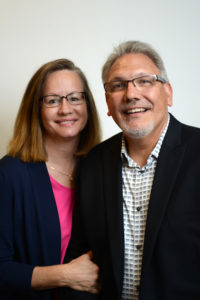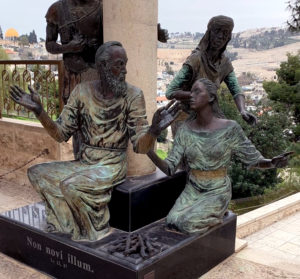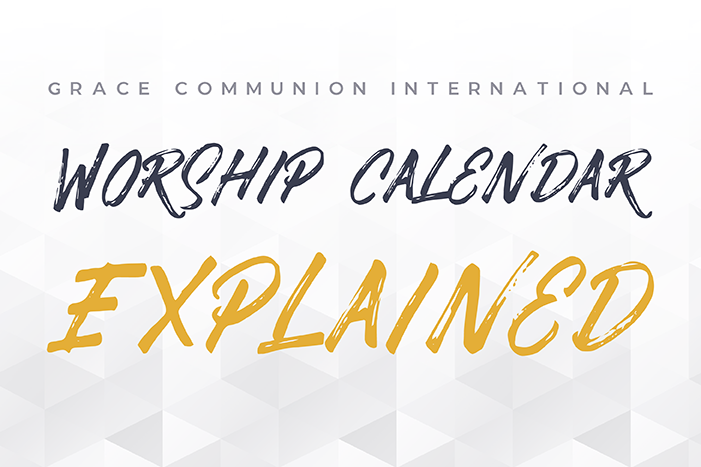
Dear Church Family,
When reading through the stories of Jesus with his original followers, it stands out that they didn’t ask him “teach us to preach” or “teach us to heal,” but rather they requested “Lord, teach us to pray.”
He was praying in a certain place, and after he had finished, one of his disciples said to him, ‘Lord, teach us to pray, as John taught his disciples.’ (Luke 11:1 NRSV)
The robust prayer life of Jesus was not lost on the disciples. Jesus answered their request with what we call “The Lord’s Prayer.” Jesus instructed them to direct their prayers to God the Father, and to make their requests in his name (as he is the Mediator for humanity for all ages). In the apostle Paul’s writings, he explains how the Holy Spirit bears witness with our human spirit making prayers out of our wordless sighs and deep yearnings (Romans 8:26-27). Prayer at its very fabric is about communicating and relating to Father, Son and Spirit.
In 2020 we are digging deep into the Hope avenue of ministry. You will recall that this avenue envelops how we as a community of believers interact in our formal gatherings and how we point people to the real, tangible hope found only in Jesus. Prayer is an integral part.
In my various travels I hear a wide array of prayers from our GCI family. We are without doubt a praying church, yet some of the shorthand expressions I hear are a bit confusing. I am not implying that there are perfect or imperfect prayers, and ultimately the Holy Spirit can clean up any utterance that we humans make. Nonetheless, allow me to discuss a few expressions that could be improved upon.
“Lord please be present in our meeting.”
The sense here is that we come across as inducing God to do something he may not be inclined to do. Within the omnipresent nature of the Triune God we know that there is no place where we are not in his presence. Therefore, it is illogical to think that we are doing anything outside of his presence. It is more appropriate to pray for our heightened awareness of the Lord’s presence, and to express gratitude in knowing he will never leave or forsake us.
A better phrase for a prayer of invocation would be “Father and Son, we welcome your Spirit to be at work in us and among us.” It demonstrates connection with the persons of the Father and Son following the clear instructions of Jesus. This idea of “welcome” helps to avoid the impression that we are trying to get God to be or do something he would rather not.
“Lord bless our plans.”
I admit I have been guilty of short-changing the process of interaction with the Lord and simply wanting his power and blessing to perform my will. (Isn’t this quicker and easier?) Before any plans germinate, shouldn’t they begin by seeking his wisdom, guidance and perfect will? In the prayer life of Jesus, as he communed with the Father, he makes this amazing statement:
“Very truly, I tell you, the Son can do nothing on his own, but only what he sees the Father doing; for whatever the Father does, the Son does likewise. The Father loves the Son and shows him all that he himself is doing.” (John 5:19-20 NRSV)
If this is true of Jesus, how much more does it apply to us?
The core problem with any shorthand expression in prayer is a narrow view of prayer—mostly trying to get God to do something he is not inclined to do by exerting some kind of inducement. So, such prayers are trying to get God to turn around.
A classic example of this is a line from the Lord’s Prayer, “lead us not into temptation.” It is assumed—but also very troubling—to think that we pray this because God is inclined to lead us into temptation. That can’t be right. But then why pray it? Allow me to explain:
Prayers can express to God exactly what God wants, what he is inclined to do. In such a prayer statement, we are not presuming upon God by having it in the form of a request; rather we are indicating to God that what we want is aligned with (not in tension with) what we know he wants. We know God does not lead us into temptation, so we agree in a non-presumptive way, by praying “Lead us not into temptation Lord, for we know that’s what you want and what we want too!”
So rather than pray, “Lord, bless our plans,” we should pray, “Lord, make your plans clear to us so we can participate with you.” Or, “Lord, because you are revealing your plans to us, help us see how we can be most effective in that plan.”
Prayer is a non-presumptive expression of our agreement with and welcome of the Triune God’s good will for us. It’s simply being in communion, joining with Jesus in his prayers, praying according to his name (who we know him to be and what we can trust him for). As we experience a heightened awareness of his presence in our meetings and gatherings, let’s then allow our thoughts and ideas that become our plans and actions to flow from a robust prayer life.
Father, may we do only what we first see you doing. In the strong name of Jesus, amen!
Greg Williams
P.S. In light of the Corona Virus threat, we certainly want to be diligent in prayer for God’s intervention and his mercy on those suffering with the disease. The effects of the virus are having a huge economic impact on the global economy. Remember to thank our great God for his provision and continue to seek “our daily bread” from the one who cares for us. Without doubt it is a season for prayer!














